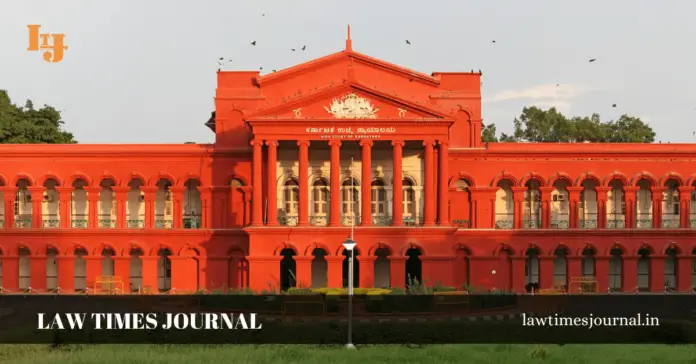
The single-judge bench of Justice Sreenivas Harish Kumar has recently granted bail to a rape accused in a case of a sexual relationship which prima facie appears to be consensual. This case is an appeal against the special court order which convicted the accused under the following sections 376 (punishment for rape), 313( causing miscarriage without consent), 307 (murder attempt), 417 (cheating) of the Indian Penal Code, 1860 and Sections 3(1)(w)(i)(ii), 3(1)(r), 3(1)(n), 3(2)(v) of SC and ST (Prevention of Atrocities) Act 1989.
The allegations against the appellant-accused in the instant case are that when the appellant was working as a manager in the Bajaj Finance Limited company, he met with the respondent as an acquaintance and later promise to marry her. The appellant and respondent had sexual intercourse with each other which is asserted by the respondent to be non-consensual. It is submitted by the respondent that the appellant threatened to viral the intimate videos of their relationship if she denies having a sexual relationship with him. In the years 2019 and 2020, respondents became pregnant twice. Both appellant and respondent terminated their pregnancy posing as husband and wife, voluntarily.
On 10 July 2021, the appellant refused to marry the respondent as she belonged to a lower caste, Madiga. It is also alleged that the appellant tried to strangulate her with the wire of a charger. The respondent tried to commit suicide, later.
Furthermore, in August 2021, the appellant approached Vanitha Sahayavani, a Bengaluru City Police community collaboration and helpline that provides support to women in distress, because he was finding it difficult to bear the torture she was subjecting him to. She filed a police complaint on 6th September 2021, after the appellant went to Vanitha Sahayavani. The roughly two-month delay between the last alleged incident and the police complaint implied that the FIR was an afterthought. Given the facts and circumstances of the case, and the fact that the investigation has already been completed, Hasmath Pasha, advocate appearing for the appellant argued that he should be granted bail.
The Karnataka high court decided to grant bail to the accused on the account that the sexual relationship seems to be prime facie consensual, since the year 2018. The court also took cognizance of the fact that the respondent is 27 years and she knew the consequences of having intercourse with the appellant. The appellant has also shown a document where both of them have purported to be husband and wife, both voluntarily terminating the pregnancy. If the fact that the appellant refused to marry her because of her lower caste, why did she wait for a gap of two months to file the complaint?
The honourable High Court further affirmed that the appellant has established a compelling case for his bail. When deciding on the bail application, the special court should have taken these factors into account. It appears that the court below has routinely decided to deny the appellant’s bail application. The appellant was released on a bail bond of two lakh rupees. The bail conditions such as not threatening witnesses, tampering with evidence, or influencing the respondent. He was ordered to appear before the trial court whenever deemed necessary and not to commit any other criminal offence, while on bail.
Case Name: Manoj Kumar M R v. State of Karnataka and Ors.






